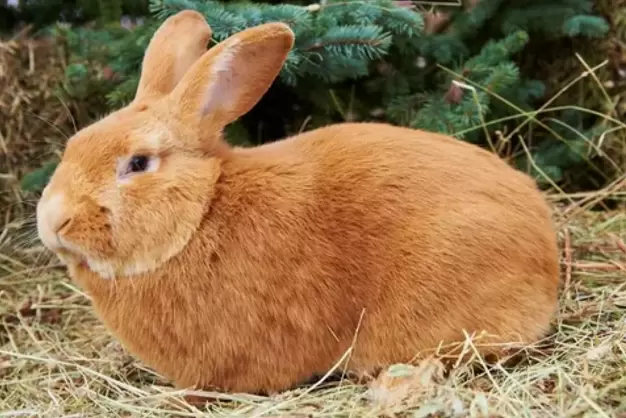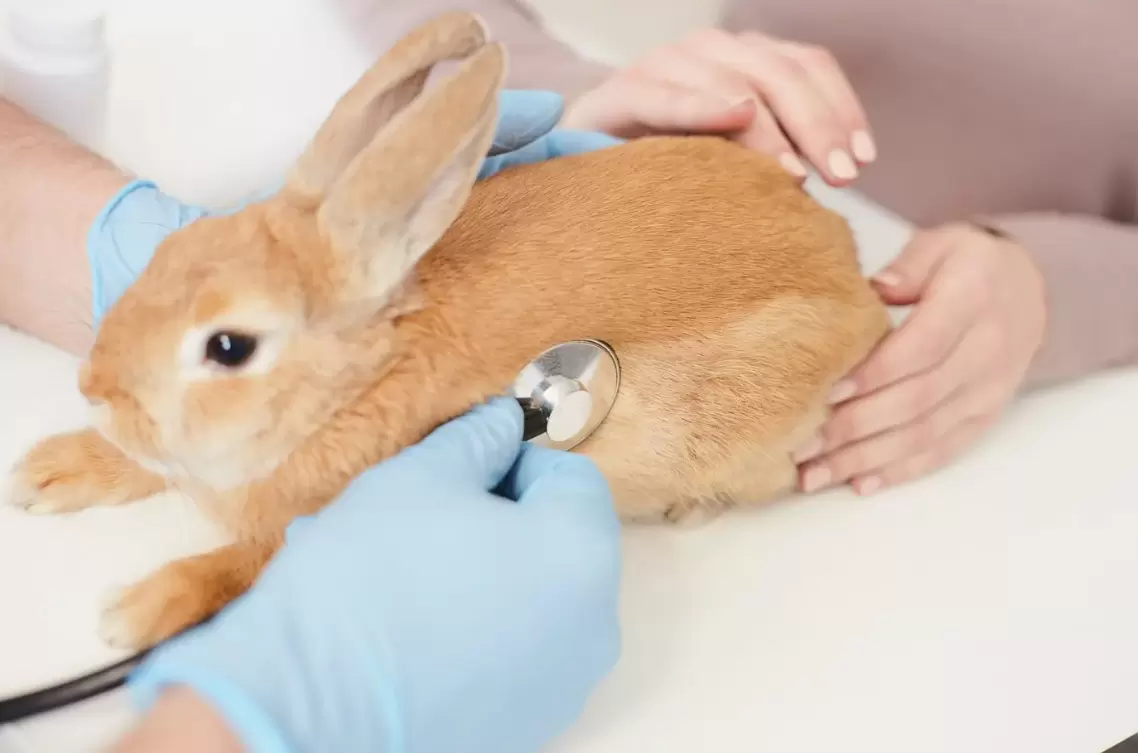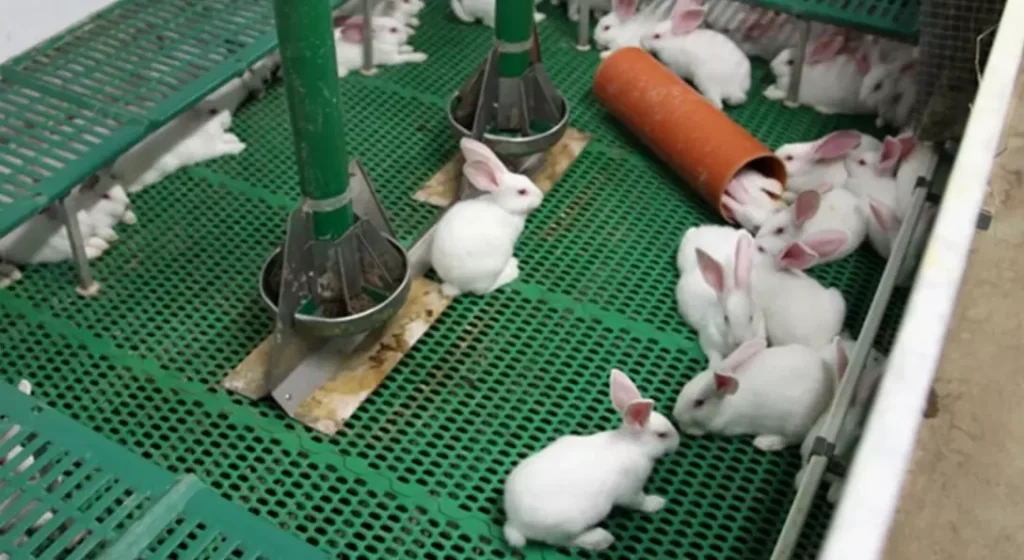As any caring rabbit guardian knows, frequently monitoring our furry companions for changes in behavior or health is important. While sometimes sneezes are harmless, recurrent or severe sneezing in a bunny certainly warrants examination.
This post details common triggers that can cause rabbit sneezing as well as guidance on supportive care and knowing when it’s time for veterinary help.
Allergies:
Many rabbits, much like human beings, are liable to seasonal or environmental allergies. allergic reactions arise while the immune machine overreacts to usually harmless materials called allergens.
. Allergens that usually motivate troubles in touchy rabbits encompass dust, pollens, molds, or sure bedding materials. The exact ingredients within hay batches can also vary and elicit an allergic response in some buns.
Some key symptoms of allergic sneezing in rabbits include repeated sneezing episodes, nasal discharge, watery eyes, and occasionally diarrhea or tender stools as well. allergic reactions tend to flare in specific seasons or while publicity surely triggers spikes. For instance:
- Spring: Tree, grass and weed pollens abound outdoors during wet spring weather and seasonal winds.
- Summer: Warm, humid conditions cause dust mite populations indoors to multiply rapidly under beds and in carpeted areas.
- Fall: Increased indoor allergens when windows are open more and foliage decays outside producing airborne mold and fungal spores.
It can take trial and error to pinpoint an individual rabbit’s specific allergens, just like in people. However, if sneezing clearly correlates to seasonal or environmental shifts, allergies are highly suspect.

Options for relief include thorough dust and dander removal from living spaces, switching bedding materials like hay to an hypoallergenic alternative, limiting time outside or adding indoor air filters and purifiers.
For very sensitive bunnies, immunotherapy or allergy drops administered under veterinary guidance may provide long term management of symptoms.
It’s also important to avoid scratching or rubbing at the face and nasal area which can cause irritation or infection. With consistent monitoring and environmental adjustments, allergic sneezing can often be reduced for affected rabbit sneezing.
Upper Respiratory Infections:
Viruses and microorganisms capable of infecting the top breathing tract of rabbits exist in our houses and communities.
As with humans, stress and lowered immunity leave pet rabbit sneezing vulnerable to catching contagious nasal bugs through the air or contact with other infected animals. The most concerning for rabbits include:
Rabbit Hemorrhagic Disease (RHD):A lethal viral ailment and not using a treatment. Transmitted between wild and commercial rabbits, symptoms involve fever, appetite loss and sometimes sudden death. Vaccination is only partially protective.
Bordetella bronchi skeptics: The culprit behind “snuffles“, seen as thick purulent nasal discharge often tinted green-yellow. Left untreated the bacterial infection can compromise breathing or lead to pneumonia. Antibiotics prescribed by an exotic veterinarian are highly effective if caught promptly.
Other less common but still notable upper respiratory viruses and bacteria include Pasteurella, Streptococcus, Staphylococcus, and Encephalitozoon cuniculi.
Prevention through vaccination (RHD, Bordetella), hygienic housing, avoiding stressors, quarantining newcomers and maintaining general wellness helps reduce risk of exposure.
If sneezing or nasal discharge lasts beyond a few days or is accompanied by lethargy, a vet visit is recommended to examine, potentially perform diagnostics like a nasal swab and provide treatment as deemed necessary.
Antibiotics, fluid support and other therapies can help nursing an infected bunny back to full health.

Foreign Objects and Dental Problems:
It’s not unheard of for rabbit sneezing, out of curiosity, to sniff and snuffle stray pieces of hay, shredded paper litter materials or loose stuffing from their toys up into their nasal passages. This immediately elicits a string of sneezes and head shaking as the bunny tries to force the irritant object out.
Issues involving misaligned or overgrown front teeth can also cause occasional sneezing and head rubbing behaviors if the teeth come into contact with the sensitive nasal area during eating or grooming. Left unaddressed, dental problems risk appetite loss, malocclusion and oral infections down the road.
Any sneezing repeatedly accompanied by vigorous head shaking or rubbing motions at the nose and eyes warrants investigation of the mouth and nostrils for potential culprit objects by an experienced exotic veterinarian.
Minor one-off episodes may simply require a thorough inspection by an owner to rule out a lodged irritant before assuming other causes.
What To Do:
For isolated or infrequent sneezing incidents with no other signs, increased monitoring and keeping housing clean and dry is usually sufficient.
But repeated or severe sneezing demands closer examination, especially if accompanied by any deviation from normal behavior or energy levels in the rabbit sneezing. Potential avenues for support include:
Ventilation & Allergen Control: Thoroughly vacuum and dust the rabbit’s room weekly paying special care around air vents and baseboards. Replace textured carpets with easily cleaned hard floors if possible. Switch to low dust bedding.
Care & Comfort: Reduce stressors and provide favorite toys, treats and petting sessions. Keep the rabbit sneezing in a quiet, indoor space and minimize handling if very sneezy to avoid additional stress. Keep their living space swept regularly.
When Things Worsen: Loss of appetite, lethargy, ocular discharge, or worsening sneezing despite preventative measures signify a vet visit is warranted. Some rabbit sneezing simply require prescription treatments under professional guidance.
Veterinary Exam: An appointment allows a thorough physical exam, microscopic nasal swabs and cultures to diagnose treatable underlying infections early before they become more serious. X rays screen for any anatomical abnormalities. Bloodwork checks organ function is still healthy despite symptoms. Treatment usually involves several weeks of appropriate antibiotic therapy as prescribed.
Proper husbandry, timely veterinary care when called for, and observant owner vigilance together help rule out hidden causes and treat potentially serious afflictions before quality of life suffers for these small furry companions.
Rabbit sneezing do tend to hide illness, so paying attention beyond outwardly appearing “normal” can prove lifesaving at times. With diligent care, many a sneezing bunny has bounced back to full health thanks to vigilance!
When To Take Action:
Recognizing when sneezing crosses over from an occasional isolated event to something needing examination is important for rabbit welfare. Specific warning signs that prompt booking an appointment with an exotic animal vet include:

- Recurrent or severe sneezing bouts ongoing for several days or more than a few sneezes daily
- Audible sneezes accompanied by vigorous head shaking or rubbing
- Clear, thick or discolored nasal discharge
- Watery, red or crusted eyes
- Lethargy: less active than normal or not eating/drinking as much
- Weight loss despite a healthy appetite
- Sneezing coinciding with other concerning symptoms like diarrhea or fevers
It can’t be stressed enough that early identification and treatment is key with upper respiratory illnesses in particular. Prompt care gives a far better chance at full recovery compared to a wait and see approach with an increasingly unwell rabbit sneezing.
A caring guardian’s diligence often proves the difference between a quick diagnosis or more complicated prolonged illness. With consistent surveillance of changes and access to qualified exotic veterinary support, most bunny sneezing issues prove manageable.
Frequently Asked Questions (FAQs):
Q: Should I be worried if my rabbit is sneezing?
A: It is always best to seek the advice of your exotics friendly veterinarian.
Q: What to give a rabbit for sneezing?
A: A mild, pediatric antihistamine such as Benadryl.
Q: How do you treat a rabbit’s cold at home?
A: Add 1/2 teaspoon of Bragg’s ACV to a liter of water.
Q: How do I clear my rabbit’s nose?
A: Use a damp cotton bud to gently clear them.
Q: Is rabbit sneezing normal?
A: It might be normal.
Conclusion:
Keeping atop factors that can lead to rabbit sneezing in pet rabbits allows timely response if an underlying issue arises needing professional guidance.
With diligence in observation practices and recognition of worrisome changes outlined here, most rabbit guardians prove quite capable of discerning innocent isolated sneezes from those warranting further expertise.
While not always easy with animals evolved to mask ailments, caringly prioritizing our furry friends’ wellness helps ensure many more loving years together.
By fostering open dialog with an experienced exotic veterinarian as sneezy episodes occur, together the best choices surface for each unique bunny’s situation. Early detection and support commonly yield happy results for all involved.

Isabella Grace has been a premier blog writer since 2009, amassing 15 years of exceptional experience in the field. Renowned for her ability to create engaging, insightful, and highly relevant content, Isabella has established herself as one of the best in the industry. Her deep expertise and innovative writing style have earned her widespread acclaim and a loyal following. Known for her meticulous research and compelling narratives, Isabella continues to set the standard for excellence in blogging, making her a leading voice and influential presence in the field.